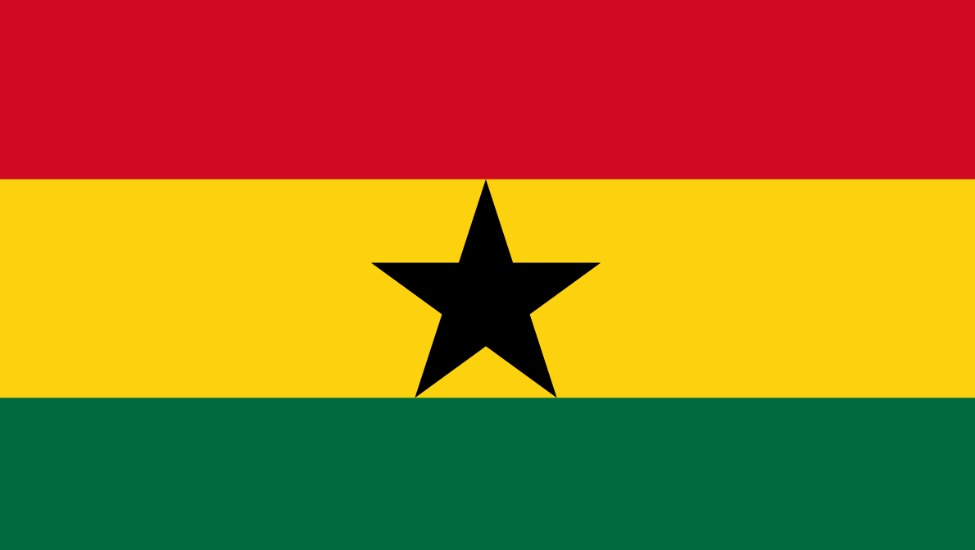Country
Ghana
The Girls' Education Challenge (GEC) had three projects working in Ghana which improved learning opportunities and outcomes for 135,751 of the country's marginalised girls.
Projects
Making Ghanaian Girls Great! - project completed implementation in January 2022
The Making Ghanaian Girls Great project supported 14,132 girls and was implemented by Plan International. It was initially designed and delivered by the Varkey Foundation from its inception until October 2019.
Barriers to education for girls included a lack of parental support, early marriage, early pregnancy, and poverty. Girls from the poorest households were vulnerable to early marriage and to having high chore burdens which prevented them from learning. Girls who had a disability, or who did not speak the language of instruction were also found to be disadvantaged. There was a lack of quality teaching and inclusive learning environments for girls, a lack of teaching and learning materials, and infrastructure-related problems such as a lack of latrines, safe classrooms, water and electricity.
The project aimed to improve learning outcomes for marginalised learners, support their successful transition through school, and contribute to sustained improvements in the Ghanaian education system. It did this through the provision of quality educational content using solar-powered and satellite-enabled distance learning infrastructure, and working alongside teachers and school leaders to improve teaching quality. The project also worked with government partners to bring about sustainable change at the school level
Discovery Project - project completed implementation in December 2020
The Discovery Project supported 104,365 girls in Ghana and was implemented by Impact(Ed) International (also implemented in Kenya and Nigeria).
Girls in all three countries face barriers to learning and transition, especially as they reach adolescence and look to transition from primary to - and through - junior secondary school. Poverty is the key driver of educational marginalisation, affecting girls’ attendance at school, their ability to fully participate in lessons and in extracurricular activities, and their ability to concentrate during their lessons. In addition, poor school infrastructure and the lack of qualified teachers and female teachers pose barriers to learning across the three countries. Concerns about distance and safe travel to school, as well as the need for girls to carry out household chores and support their household economically, often resulted in girls not attending school.
The project aimed to increase girls’ learning outcomes in numeracy and English literacy, their self-esteem and self-efficacy, and their successful completion of the primary cycle and transition into junior secondary school. This was done through the provision of educational content and technological solutions alongside teacher professional development to primary schools. Remedial classes were established to support academic learning and Girls’ and Boys’ Clubs were established to build life skills. Core to the project approach was working closely alongside communities and school leaders to address the barriers to girls’ learning.
Leave No Girl Behind project
The Strategic Approaches to Girls’ Education project supported 17,254 girls and was implemented by World Education Inc.
The barriers affecting education are interrelated throughout community, school and system levels, impacting all children, but disproportionately disadvantaging girls. The project worked in communities with high levels of extreme poverty, and financial challenges was a major barrier to education. In addition, deep-seated traditional and social norms were resulting in early marriages, pregnancies and a high chore burden on girls, which was also having a negative impact on girls’ ability to complete their education. Under-resourced schools, rigid systems and a loaded curriculum was unable to meet girls’ needs in rural communities. In addition, little funding was allocated to vocational training and apprenticeship programmes, so few opportunities existed.
The project implemented two programme tracks for highly marginalised girls. Younger girls (aged 10 to 14) were provided with nine months of an accelerated learning programme (ALP) alongside life skills training, before being supported to transition to formal school. Older girls (aged 15 to 19) were supported on a vocational and employment track, with a focus on literacy, numeracy and vocational skills. The project tackled barriers at the individual, community, school and system levels, working closely with caregivers, community members and school staff. STAGE also worked to reduce financial barriers and to put girls on pathways that would break the cycle of poverty.
